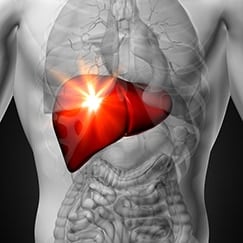
Bile, a fluid produced by the liver and stored in the gallbladder, naturally aids our digestion process. Now, however, Dr. Andrew Bulmer, a researcher out of Griffith University, has found that a certain pigment within bile may aid in cardiovascular health.
Published in the International Journal of Cardiology, the study shows that the direct infusion of this pigment—called bilirubin—into the heart post-heart attack actually improves the organ’s function during recovery.
Additional research has shown that higher levels of bilirubin can also prevent blood vessel disease. “We believe that this protection could be related to recently identified anti-oxidative property of the bilirubin molecule,” explains Dr Bulmer, who also notes that these findings may have positive implications for improving overall life expectancy.
“This is a very important finding as very few drugs are able to be administered following a heart attack to improve heart function,” says Dr Bulmer. “[Previously,] bilirubin was just associated with people having jaundice; however we have now shown that mildly elevated bilirubin is actually beneficial, naturally protecting an individual against cardiovascular disease.”










